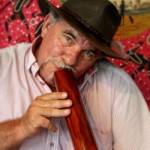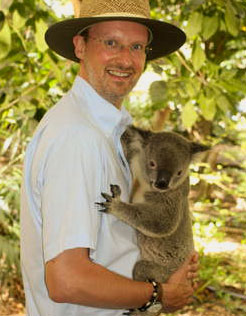
Today, Friday 11 June 2010, the world’s eyes are on the start of the Football World Cup in South Africa, in which people from so many different nations will meet each other and confront different cultures. Listeners across the world, please keep your fingers crossed that this World Cup in Africa will become a memorable intercultural event!
I must admit – I am not even a football fan, and certainly no specialist, but I thought I have to make an effort and speak about football today, about stereotypes, about cultural misunderstandings and linguistic challenges connected with big international events – not just football but also cultural events. I talked with people from Belgium, England and Spain, to see what kinds of experiences they have made in intercultural communication.
absolutely confused
As you all know, today the Football world cup in South Africa starts and I’m sure that most of you can’t wait to see your favorite team win. Have you noticed that while we think of these international events are great intercultural meeting places, international football matches often give rise to a lot of terrible stereotypes? These are moments when fans dig deep and sometimes come up with very unpleasant clichés. English tabloids sometimes use war metaphors to describe the German teams in a contest. I called Jean, a friend of mine who moved from Manchester to Bonn years ago. In our first category she tells us how those terrible old stereotypes always come up again when there is an international football event.
absolutely ambiguous
Now, two days ago, I was very lucky and was able to get a personal interview with an incredibly interesting person. Frie Leysen is the Programme Director of the “Theatre of the World” Event and came to Cologne to share her vision of this great international event of performing arts with us. While many of us interested in intercultural communication try to reduce ambiguity by finding cultural explanations for differences and theories for coping with unwanted loss of orientation, Frie does the opposite. She invites more than 30 of the most interesting theatre productions to one location in order to force the audience to embrace ambiguity and misunderstandings.
absolutely perplexed
Some time ago I met Marlen from Spain who had spent some time in Germany and she shared with us the cultural differences which exist between Spain and Germany. In our next category we’ll hear what experiences Marlen made with German men in the streets and how she learned to handle them.
absolutely proud
Now let us come back to Jean, with whom I continued the football conversation about the psychological problems Germans used to have with their national pride after the war and the taboo of private flags. Now, this changed a lot during the World Cup in Germany in 2006 when at least the younger generations put these taboos behind them and behaved like youngsters all over the world. And now, before the world cup starts we can see this again. Suddenly, it seems acceptable to put a flag in your window or even on your car. In our last category Jean is divided whether flags and partiotism should be seen as right or wrong.
The next show will be hosted by Anne Fox in Denmark on 25 June
Until then –
Bleiben Sie absolut interkulturell!
The host of this show is: Dr. Laurent Borgmann
Editor: Dino Nogarole







 absolutely down-under
absolutely down-under
 Even if we expect differences when we travel or meet foreigners in our own countries – the best and most intensive intercultural learning is always accompanied by small culture shocks. Our show today will focus on the
Even if we expect differences when we travel or meet foreigners in our own countries – the best and most intensive intercultural learning is always accompanied by small culture shocks. Our show today will focus on the